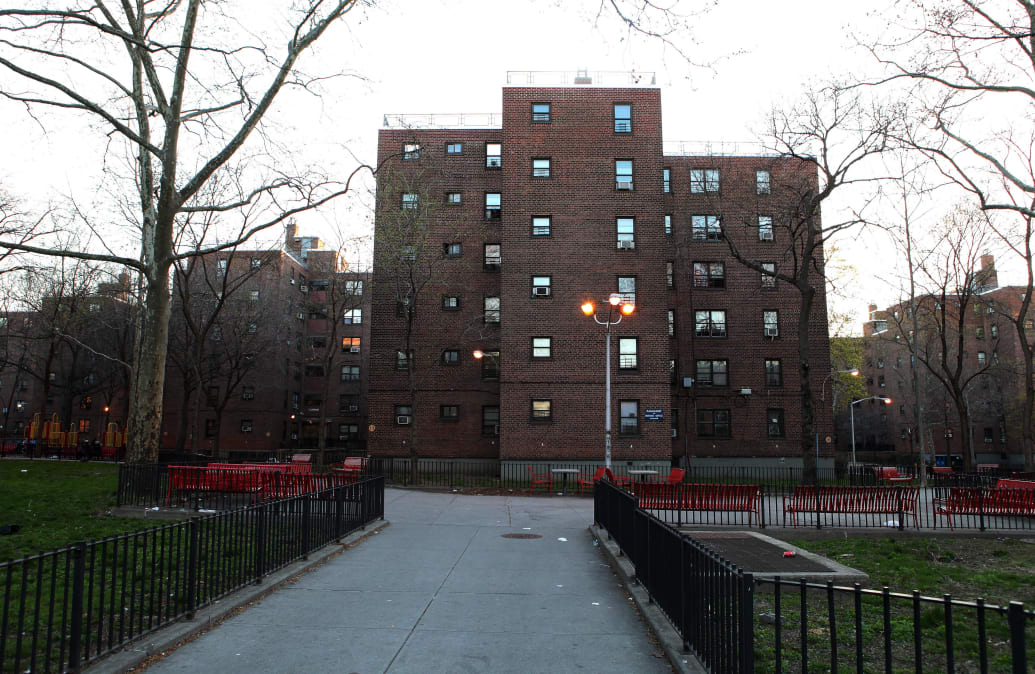In another case of wealthy people shilling crypto to the financially vulnerable, rapper Jay-Z and Twitter founder Jack Dorsey have joined forces once again to launch a financial literacy program called The Bitcoin Academy that will teach residents of Brooklyn’s Marcy Houses, where Jay-Z grew up, about the world of cryptocurrency and how to avoid scams.
In a tweet announcing the new project on Thursday, Dorsey wrote, “[B]itcoin is becoming a critical tool for many in Africa and Central and South America. We believe the same potential exists within communities in the US. Our goal is to prove that making powerful tools more available to people enables them to build greater independence.”
He added, “Education is where we start. This isn’t just about bitcoin… it’s about long-term thinking, local economies, and self-confidence. Courses are free to all Marcy residents, including kids. And to make it even easier we’re providing devices and data plans for all who need it.”
According to The Bitcoin Academy website, the free, biweekly classes—starting June 22—will be held online and in-person for 12 weeks, with dinner provided for in-person attendees. All participants will receive MiFi devices with a year-long, limited data plan and smartphones, which they can keep. Additionally, there will be a separate Crypto Kids Camp held on two Saturdays for residents ages 5-17.
That’s right. A child who’s still learning how to read and add numbers will have the opportunity to learn (and most likely, forget) about blockchains, as opposed to having their groceries paid for or savings endowed, thanks to the “generosity” of two exorbitantly wealthy dudes.
As one can imagine, backlash to Jay-Z and Dorsey’s initiative on social media was swift, with users primarily slamming Jay-Z. At a time when Hollywood’s biggest entertainers are tweeting ominous warnings about the metaverse and showing off their hideous ape NFTs, celebrities that are part of the “cryptocurrency revolution”—usually for a cash grab—are increasingly being held accountable for misleading the public. For example, Kim Kardashian and Floyd Mayweather Jr. are currently being sued over deceiving advertisements for the cryptocurrency token EthereumMax, the value of which quickly plummeted after Kardashian plugged it on her Instagram Stories last year.
“
At a time when Hollywood’s biggest entertainers are tweeting ominous warnings about the metaverse and showing off their hideous ape NFTs, celebrities that are part of the “cryptocurrency revolution”—usually for a cash grab—are increasingly being held accountable for misleading the public.
”
Namely, these endorsements, sent out to millions of followers on social media, typically omit the risks of entering into an extremely risky market where participants are frequently subject to scams and, in the case of NFTs, their art being stolen—not to mention the substantial carbon footprint bitcoin production is leaving behind.
Likewise, the internet seemed mostly aware that Jay-Z’s efforts would potentially bring more harm than good and weren’t much different than taking Marcy residents on a weekly outing to a casino. However, even if the financial literacy program didn’t involve learning about crypto, the notion that poverty is determined by individual behavior and not structural forces is both misguided and deeply offensive. It’s also characteristic of Jay-Z’s brand.
The musician, a staunch believer in capitalism, has long proposed Black ownership and “financial freedom” as a path to liberation, as opulence has become a larger theme in the later parts of his oeuvre. Likewise, he’s known to censure Black people for not handling their money properly—like in the song “The Story of O.J.” from his 2017 album 4:44. He controversially rapped, “You wanna know what’s more important than throwin’ away money at a strip club? / Credit / You ever wonder why Jewish people own all the property in America? / This how they did it / Financial freedom my only hope.” And on the Pharrell Williams-assisted track “Entrepreneur,” an ill-received response to 2020’s Black Lives Matter protests, he instructs listeners, “for every one Gucci, support two FUBUs.”

Marcy Houses, former home of rapper Jay-Z, in the Bedford-Stuyvesant neighborhood of Brooklyn, New York, on April 15, 2016.
Raymond Boyd/Getty
These financial principles are popular in mainstream hip hop and amongst members of the Black elite. It’s more advantageous for Black celebrities to tell their followers how they should be spending their meager paychecks as opposed to advocating for free healthcare or affordable housing. Rapper 21 Savage was met with similar skepticism when he announced a virtual financial literacy course with the mobile banking app Chime in 2020. And this “invest in your community” rhetoric was a point of critique in an episode of Atlanta last season.
While everyone should learn how to budget, it’s safe to say that this particular gesture from Jay-Z and Dorsey—when they could redistribute the tiniest fraction of their wealth and make a much bigger, material impact on these residents’ lives—is stingy and, quite frankly, gross.
Unfortunately, both businessmen understand that many people in desperate financial situations are willing to accept crumbs. It’s understandable that potential participants of The Bitcoin Academy would be eager to get their hands on what’s being sold to them as an entryway to sustainable wealth. But lower-income people are also often acutely aware of their economic situations, how they got there, and the systems that are constantly screwing them over. Hopefully, they take their new smartphones, free dinners, and tell those two billionaires to fuck off.

No Comments Yet